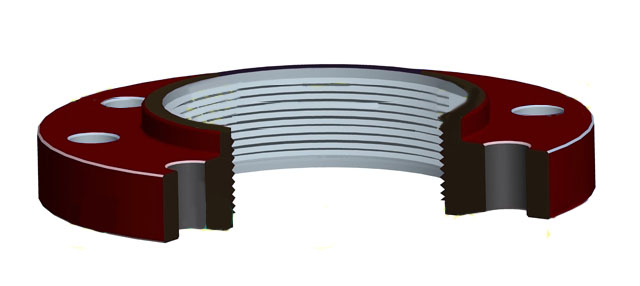 Good Mid-Range Corrosion Resistant Alloy
Good Mid-Range Corrosion Resistant Alloy
- Mid-range corrosion resistant alloy
- Decent mechanical strength to 1000°F
- Alloy 20 chemistry and specifications
- Alloy 20 sulfric acid performance
- Threaded flange features and benefits
- Alloy 20 Datasheet
Also known as Carpenter 20 and 20CB-3, Alloy 20 threaded flanges offer users a combination of nickel, chromium, molybdenum, and copper which provides good general corrosion resistance. Alloy 20 threaded flanges are best suited for mid-range corrosion use – better than steel alloys but not at the level of high performance nickel based alloys like Hastelloy C276. Alloy 20 is a nickel alloy that was initially designed to withstand the harsh environment of hot sulfuric acid but also performs well in a variety of other acids. Alloy 20 threaded flanges are an ideal choice when you don’t need the corrosion resistance power and price-tag of high performance nickel alloys like Hastelloy C276; but you need something that will give you more protection than 316 stainless steel or even a Super Duplex 2507 stainless steel.
Corrosion Resistance
Alloy 20 threaded flanges provide good performance in hot sulfuric acid, specifically they offer good resistance to stress-corrosion cracking in boiling sulfuric acid at specific range of 20% to 40% concentration, as well as general sulfuric acid resistance. Alloy 20 offers solid acid protection and will perform better than Duplex or even Monel, but for high temperature and high concentration acids, you may need to look to Inconel or Hastelloy fasteners. In addition, Alloy 20 threaded flanges also show useful resistance to phosphoric acid and nitric acid.
Key Corrosion Resistant Features:
- Good sulfuric acid protection at 20% - 40%
- Decent stress corrosion cracking, pitting and crevice corrosion resistance in chloride
- Resonable general corrosion protection
- Good intergranular corrosion resistance in the as-welded condition
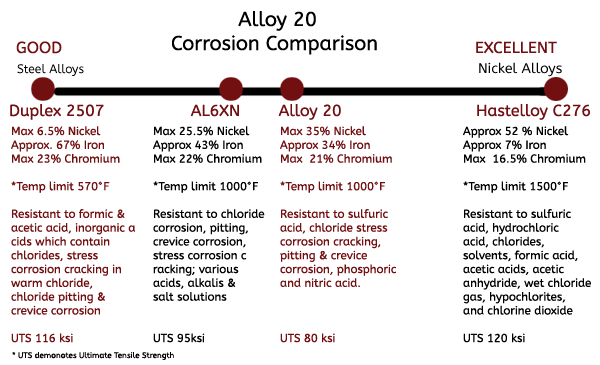
Mechanical Properties
o Ultimate tensile strength: 80 ksi
o Yield strength: 35 ksi
o Density: 0.292 lb/in.3
o Electrical Resistivity (RT) 651 ohm-cir mil/ft
o Elongation: 30%
Temperature
In addition to their corrosion resistance, Alloy 20 threaded flanges also perform well at moderately high temperatures, with the ability to maintain their mechanical strength up to 1000°F.
Welding
Alloy 20 threaded flanges are stabilized with Columbium to minimize carbide precipitation during welding. In addition it offers intergranular corrosion resistance in the as-welded condition.
Applications
o Power plants rely on alloy 20 threaded flanges for flue-gas desulfurization
o Alloy 20 threaded flanges are used to connect heat exchangers, mixing tanks, metal cleaning equipment, pickling tanks and racks, and piping in mid-range corrosive chemcial processing environments.
o Alloy 20 threaded flanges help solve corrosion issues in food and dye production.
o Manufacturers of plastics and synthetic rubber also utilize alloy 20 fasteners.
Resources: Alloy 20 Torque Specs, Flange Dimensions, Flange Bolting Chart
Flange Types Available: Blind Flanges, Lapped Joint Flanges, Slip On Flanges, Socket Weld Flanges, Threaded Flanges, Weld Neck Flanges
Alloy 20 Chemistry & Specifications
Alloy 20 Specifications: UNS N08020, ASME SA240, , ASME SB366, ASME SB462, ASME SB463, ASME SB464, ASME SB473, ASME SB729, ASTM A240, ASTM B366, ASTM B463, ASTM B464, ASTM B473, ASTM B729, ASTM BB462, ANSI/ASTM A555-79, EN 2.4660, , Werkstoff 2.4660, CN7M, DIN 2.4660

Alloy 20 Sulfuric Acid Performance
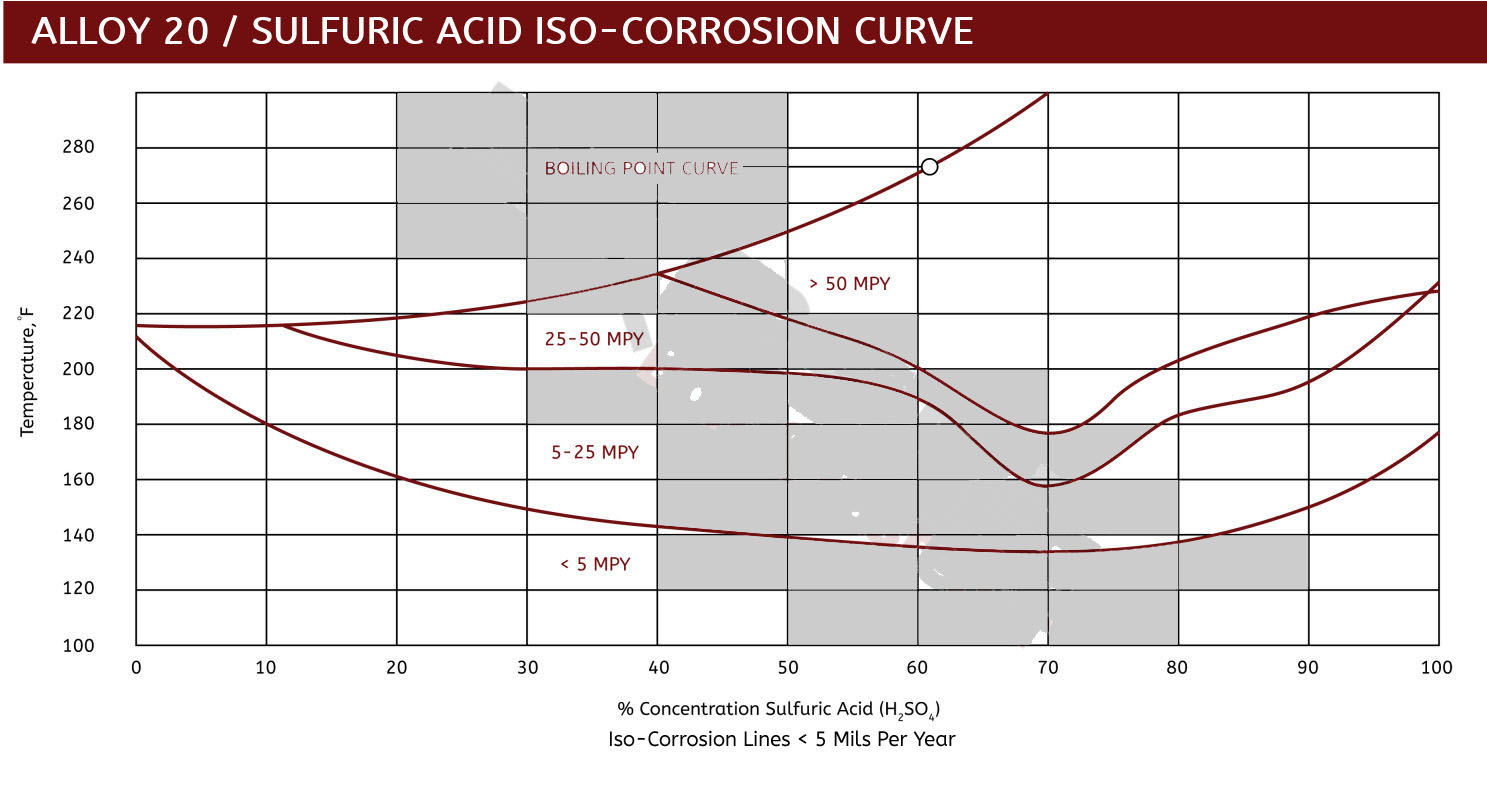
Alloy 20 Sulfuric Acid Comparison
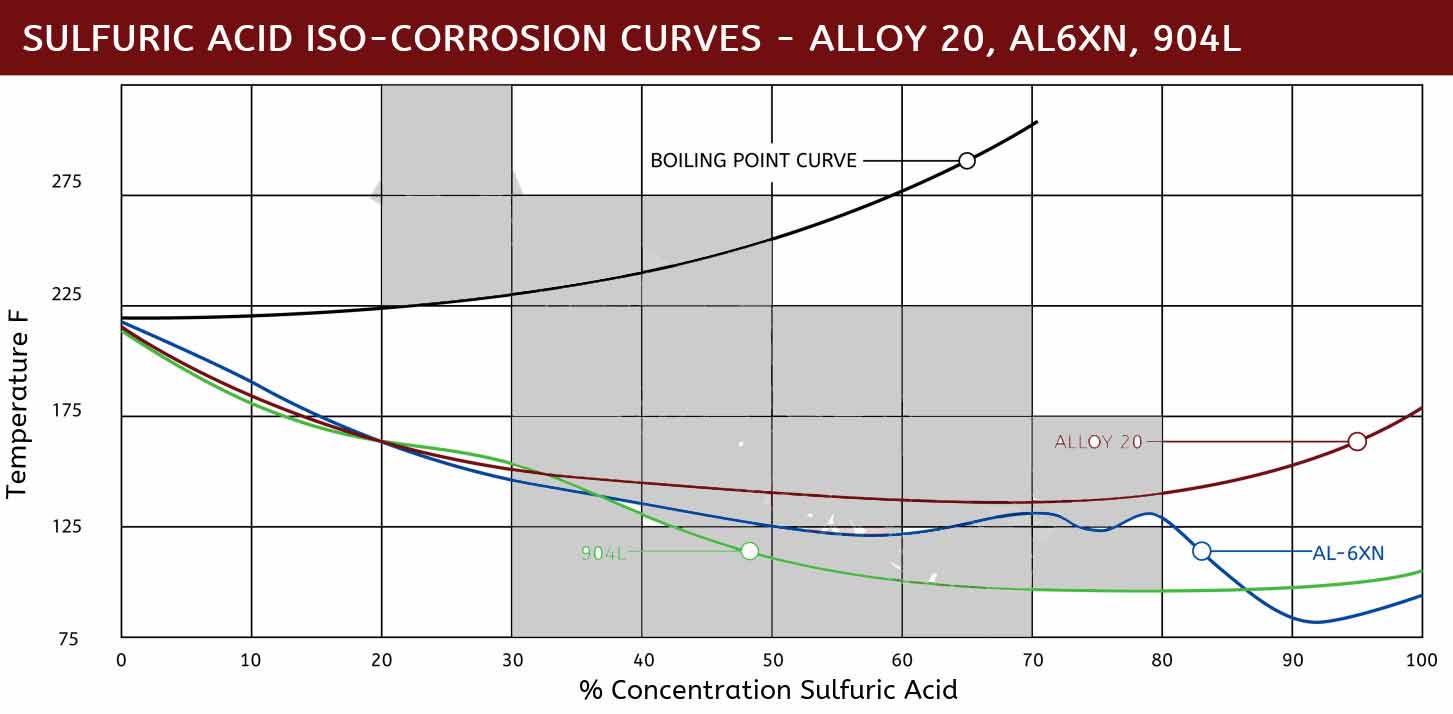
Alloy 20 Threaded Flange Features & Benefits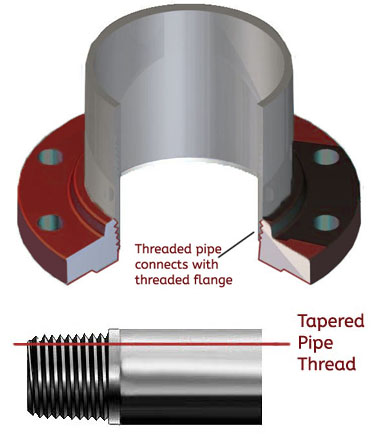
Alloy 20 threaded flanges have a tapered female thread to join the male threads of a pipe in order to create a tight seal. This type of flange is most ideal when post weld heat treatment is not possible in hazardous, flammable or explosive applications where welding is too dangerous. Alloy 20 threaded flanges are also convenient in pilot processes whose configuration is often changed.
Threaded Flange Advangtages
- The main benefit is that that threaded seal eliminates the need for welding.
- As they do not require welding they save time and money to install.
- Allow for connections to be made in dangerous, explosive applications where welding is not possible.
- Useful connection in materials that are difficult to create a successful and strong weld.
- Ideal for connecting small diameter pipes.
- Systems could be easily reconfigured.
Threaded Flange Disadvantages
- They are not suitable where high temperatures, frequent cyclic conditions or bending stresses are likely in applications.
